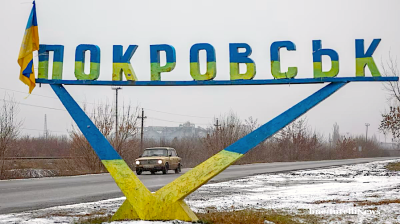Bulgaria’s Supreme Court of Cassation (SCC) ruled that the country’s current legislation does not allow courts to admit proceedings for the legal change of a person’s gender in government-issued documents for people identifying as transgender in a decision seen as a violation of international standards for human rights.
The SCC based its decision on a ruling by the constitutional court made in 2021 that the concept of gender in the country’s constitution referred solely to the biologic aspect. The same ruling was used by the constitutional court against the adoption of the Istanbul Convention back in 2018.
The SCC said that constitutional court’s ruling was legally binding and that this interpretation did not breach the provisions of EU law and the European Convention on Human Rights.
The court also noted that there were no grounds for a court to accept legal proceedings to change the gender, name and ID number in civil status acts of persons claiming they are transgender. These acts include birth, marriage and death certificates.
It also noted that only MPs could decide on conditions and consequences in case someone’s gender identity differs from their sex assigned at birth.
However, the decision was not taken unanimously. 21 of the 49 judges in the general assembly of the SCC civil college noted that instead of imposing a general ban on the legal change of gender, the SCC should allow such changes by taking into consideration the specifics of each case.
The Bulgarian Helsinki Committee, a human rights NGO, said in a statement that the high court’s ruling contradicted international standards for human rights.
“With its ruling, the SCC will trigger a wave of new judgements against the country in the European Court of Human Rights, the European Court of Justice and the UN Human Rights Committee,” the NGO noted.
It added that the ruling comes after decades-long practice of changing the sex of transgender people in documents, although that was not respected in all cases.
“The SCC is basing [its ruling] on non-legal categories such as religion,” the NGO added.
The court does not use scientific arguments in its ruling.
Istanbul convention rejected again
Also on February 21, Bulgaria refused once again to implement the Istanbul Convention for prevention and combatting violence against women and domestic violence.
In a statement on its website, the foreign ministry said it has confirmed the country’s position against adoption of the Istanbul Convention but that it was strongly engaged in combatting violence against women.
The foreign ministry based this move on a 2018 constitutional court decision that the Istanbul Convention is in violation of the Bulgarian constitution.
What prompted the July 2018 decision, and the whole controversy with major political implications, is the definition of gender, which is too vague for the Orthodox electorate of several Central and East European countries including Bulgaria.
At the time, the constitutional court said that, despite its undisputed positive aspects, the convention is internally contradictory. It said in its ruling that, by defining gender as a social construct, the gender boundaries of men and women are being relativised, but if society loses the ability to distinguish woman and man, the fight against violence against women remains a formality.
News

Russia test fires its Burevestnik nuclear-powered cruise missile
Russia’s Burevestnik nuclear-powered cruise missile has no analogues in the world, Russian President Vladimir Putin said, as the Kremlin escalates the unfolding missile arms race with Ukraine another notch.

Russia claims to surround Pokrovsk
Russia’s chief of the general staff Valery Gerasimov triumphantly reported to Putin that 31 Ukrainian battalions have been encircled in Pokrovsk and 18 battalions in Kupyansk, the hottest spot in the war.
.jpg)
Brazil and US to start urgent tariff negotiations after Trump-Lula meeting
Brazilian President Luiz Inácio Lula da Silva and US President Donald Trump have agreed to start immediate negotiations on tariffs and sanctions imposed by Washington, following a meeting in Malaysia that sought to ease trade tensions.

Cambodia and Thailand agree peace deal
Thailand and Cambodia have agreed a peace deal to mark the end of a conflict earlier in the year as Cambodian Prime Minister Hun Manet and Thai Prime Minister Anutin Charnvirakul attended a signing ceremony overseen by US President Donald Trump.




